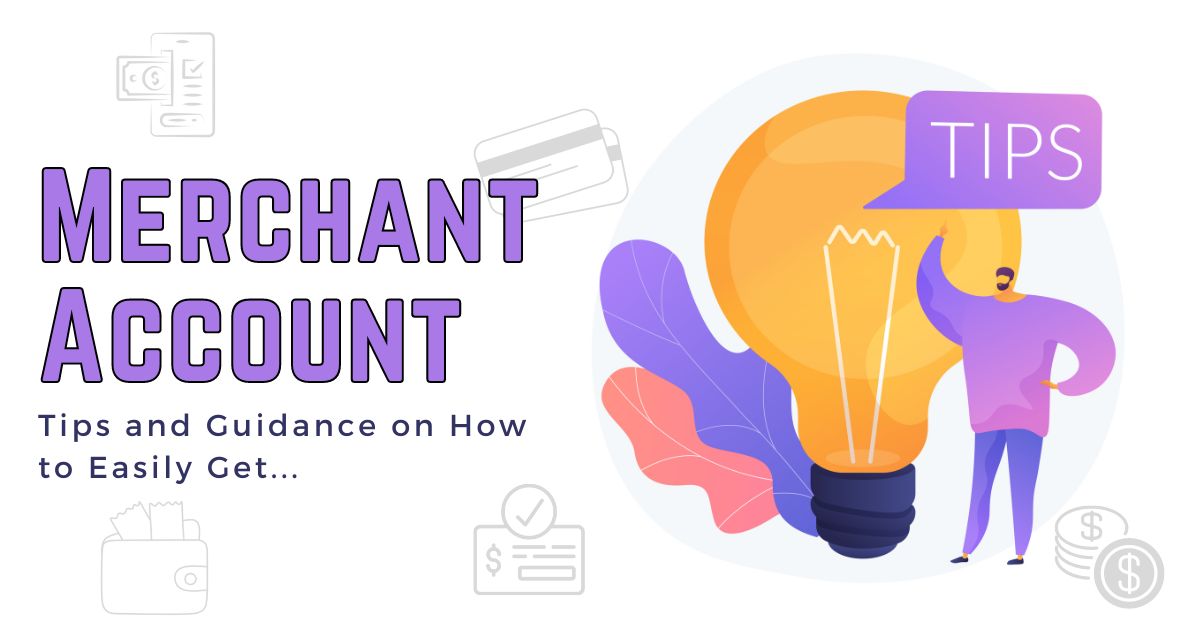
| March 6th, 2017 |
How to Get Your Merchant Account Easily – Tips and Guidance!
Every e-commerce merchant requires a merchant account. This simply enables him to accept credit card payments for what customers are purchasing from him. It can be either or both products and services. The process of opening a merchant account is simple if you get the right partner by your side. You should have a basic idea of the process of applying for a merchant account. This starts with a credit check in order to determine whether you qualify for a merchant account or not. Also, it also evaluates how much payment you can process every month.
There are many possibilities for getting chargebacks and refunds from customers. The businesses that happen to be riskier in terms of chargebacks and volumes are referred to as high-risk businesses. For them, high-risk merchant accounts are required. When a customer disputes the activity on his credit or debit card, this comes back to the merchant service provider and the partner bank in form of liability.
Undermentioned is the list of items that usually are required while opening a merchant account:
FOR CORPORATIONS & LLCs —
• LEGAL ENTITY- Your business entity has to be legally approved. Look out for legal entity setup for your business like LLC, C-Corp, and such.
• EIN Number- You will have to produce the unique Employer Identification Number so that IRS can identify your company.
• Business Checking Account- This is required to deposit the transactions directly to this account from the merchant service company.
Once the above-sited things are in place, the application process can be started with consent from the merchant service provider. Sole proprietors do not require any of these and can directly sign up with their names, social security numbers, and personal bank accounts.
THINGS THAT CAN PROVE TO BE UNFAVORABLE FOR GETTING AN APPROVAL FOR A MERCHANT ACCOUNT:
There are certain factors considered by the merchant service providers and the partner banks before they approve or disapprove the application for a merchant account. The challenging factors are listed below for your perusal:
1. BAD CREDIT —
This is the most common reason for the denial of a merchant account application. However, there are third-party merchants that work with high-risk applicants at a nominal fee.
2. STARTUPS —
New entrants in any industry are always at high risk. Established companies may always throw them out of existence.
3. NATURE OF INDUSTRY —
The nature and type of business you are in is largely responsible for the non-acceptance of your merchant account application by the service providers. Previous experience with businesses of the same kind can get your application a red flag. Types of industries that obtain merchant accounts with great effort and much difficulty are as follows:
• Online gambling
• Multi-level marketing companies
• Affiliate marketing companies
• Guns and ammunition
• Gym memberships
• Dietary supplements and more….
4. EXPECTED BUSINESS VOLUMES —
You will be asked to anticipate the business volumes you are expecting every month. If you give indications for a high level of processing volume, your chances of getting the application approved will be greatly reduced. The more the volume the more the chances of chargebacks and in turn the merchant service provider will be exposed to more risks. It is advised to be conservative and ask for the minimum you need. As you are always having the option to raise the volume later if the initial volume picks up.
5. AVERAGE TICKET SIZE —
The average ticket size is the average transaction price your business will have. Typically, the merchant service providers will relate higher ticket size to higher risk and higher chargeback cost. It will again be riskier for merchant service providers and partner banks to approve the application.
Having a good merchant account is beneficial for your business in the long term. If you are finding it hard to get your application for a merchant account approved, tell the experts to assist.
Feel free to Contact us today!